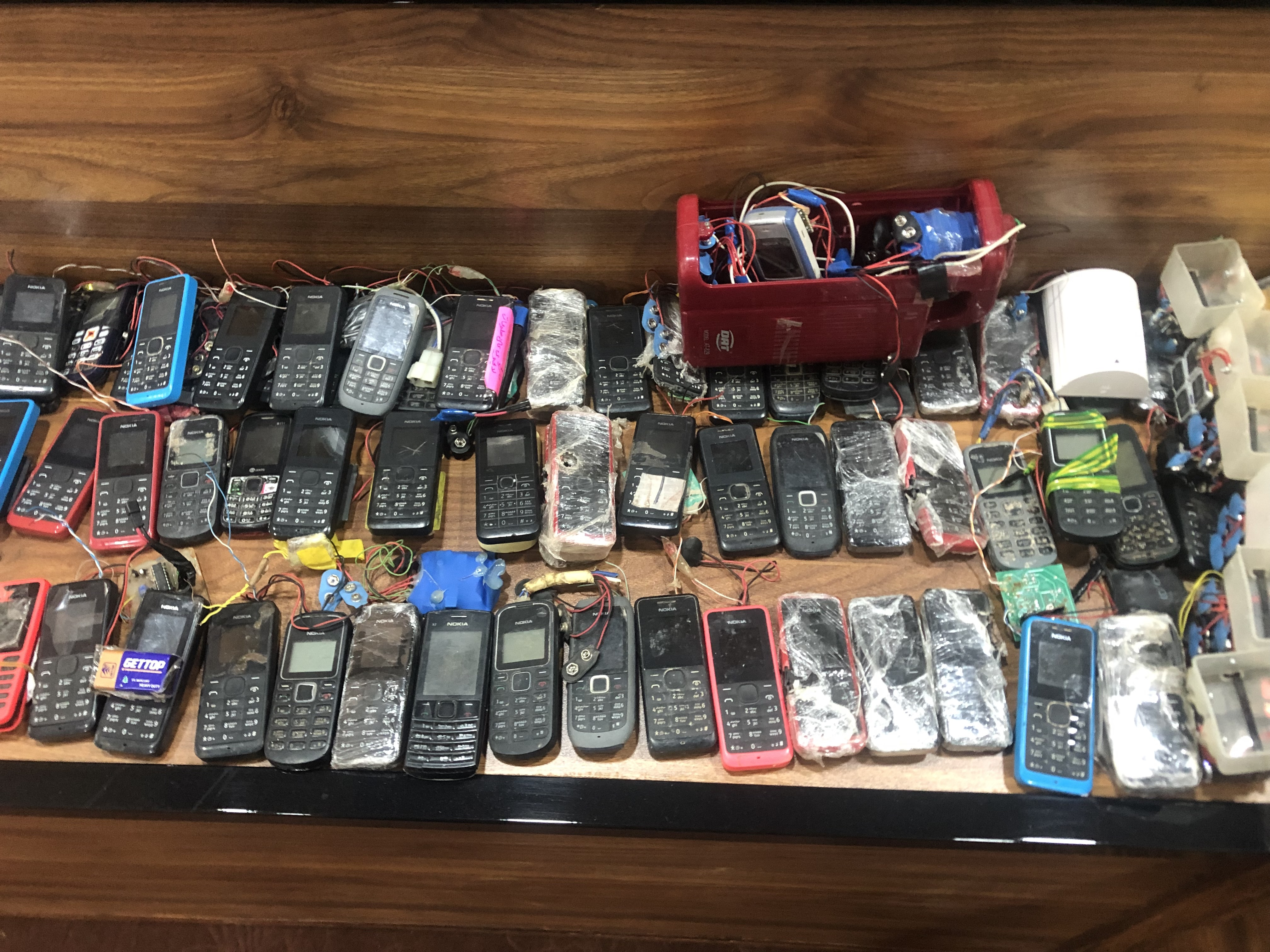UNITAD and Iraq Strengthen Justice through Groundbreaking Digitization and Preservation of Da’esh-Related Materials
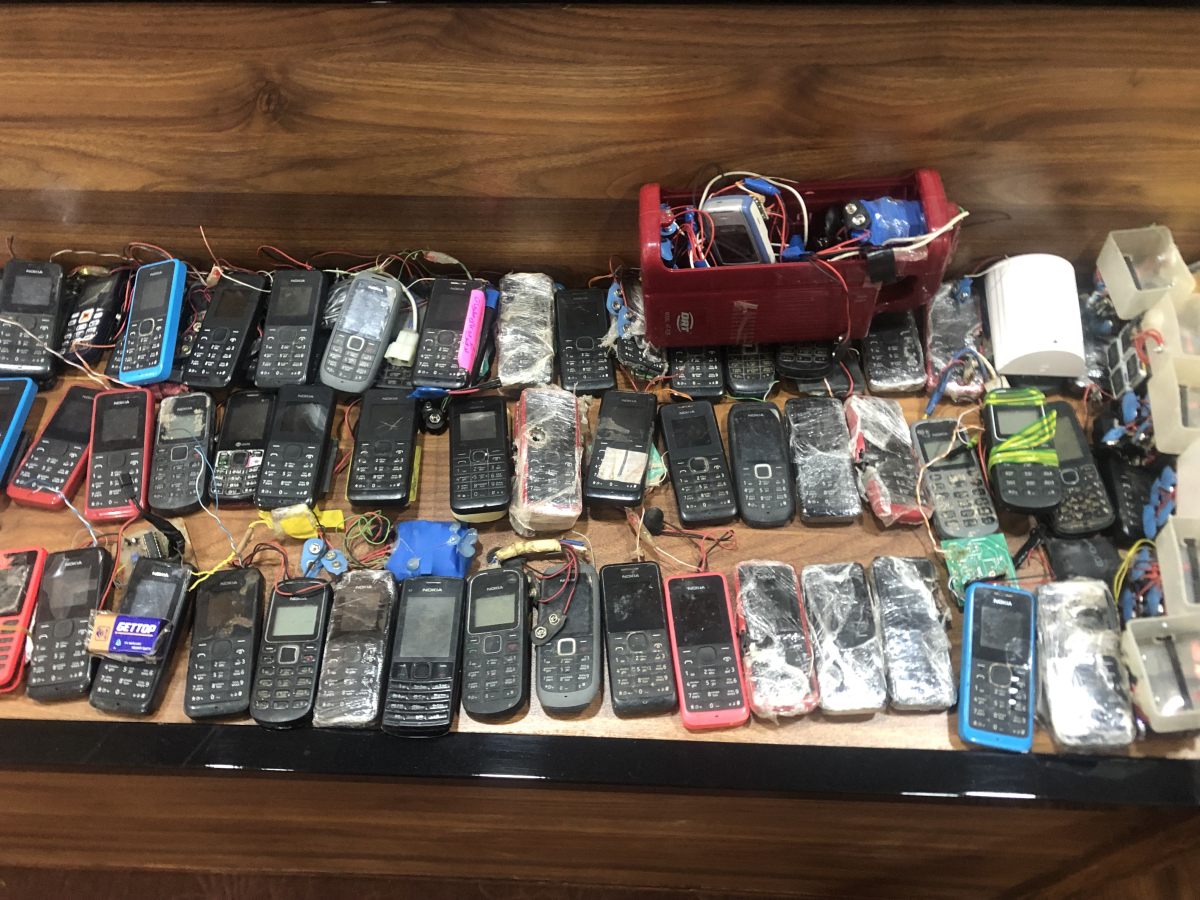 11 September 2024, Baghdad: In relation to the closure of the United Nations Investigative Team to Promote Accountability for Crimes Committed by Daesh/ISIL (UNITAD) on 17 September 2024, UNITAD has finalized its project on the Digitization and Preservation of Da’esh-related materials, in close partnership with relevant Iraqi authorities. It has made significant strides in preserving, organizing, and archiving critical documentary records and evidentiary material related to ISIL (Da’esh). This initiative, supported by the European Union with USD 7 million over four years, has safeguarded large volumes of documentary materials that were at risk of being lost or destroyed due to inadequate storage conditions.
11 September 2024, Baghdad: In relation to the closure of the United Nations Investigative Team to Promote Accountability for Crimes Committed by Daesh/ISIL (UNITAD) on 17 September 2024, UNITAD has finalized its project on the Digitization and Preservation of Da’esh-related materials, in close partnership with relevant Iraqi authorities. It has made significant strides in preserving, organizing, and archiving critical documentary records and evidentiary material related to ISIL (Da’esh). This initiative, supported by the European Union with USD 7 million over four years, has safeguarded large volumes of documentary materials that were at risk of being lost or destroyed due to inadequate storage conditions.
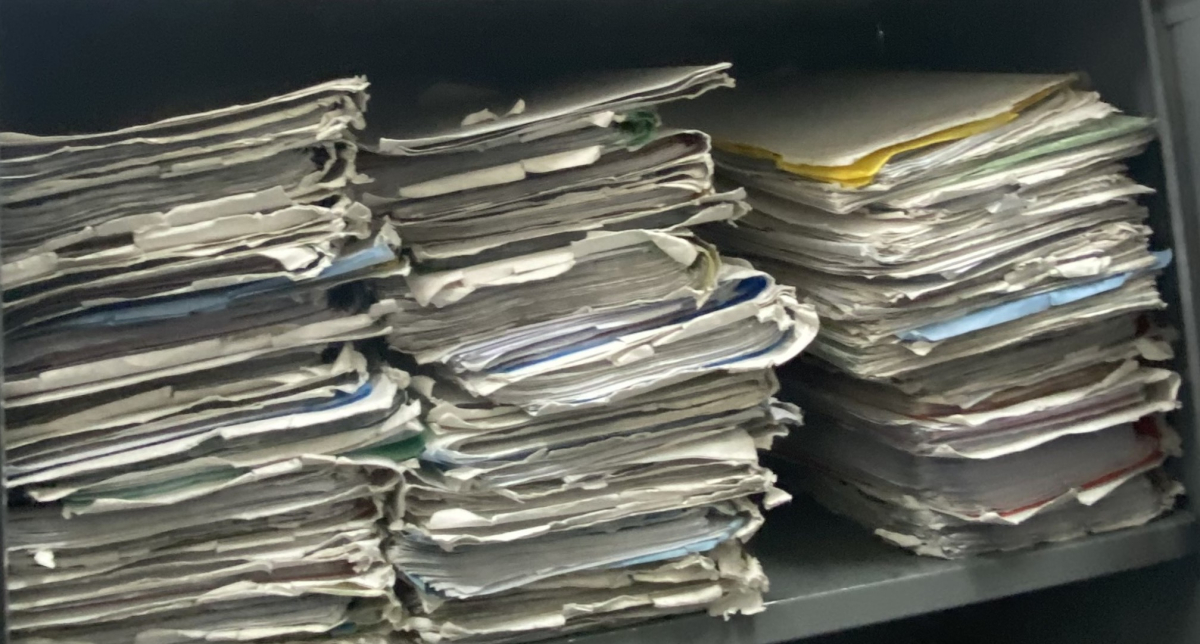 Since 2020, UNITAD has worked with 15 national authorities to preserve over 20 million pages, representing 445,000 case files, and extracted data from hundreds of digital devices formerly used by ISIL (Da’esh). To support the work of its Iraqi counterparts, UNITAD recruited over 100 Iraqi consultants – of whom more than half are women – and trained them to prepare, digitize, and archive documents. These collaborative efforts have culminated in the creation of the world’s largest centralized database of ISIL (Da’esh)-related court files and original documents, hosted by Iraq’s Supreme Judicial Council (SJC).
Since 2020, UNITAD has worked with 15 national authorities to preserve over 20 million pages, representing 445,000 case files, and extracted data from hundreds of digital devices formerly used by ISIL (Da’esh). To support the work of its Iraqi counterparts, UNITAD recruited over 100 Iraqi consultants – of whom more than half are women – and trained them to prepare, digitize, and archive documents. These collaborative efforts have culminated in the creation of the world’s largest centralized database of ISIL (Da’esh)-related court files and original documents, hosted by Iraq’s Supreme Judicial Council (SJC).
Through a dedicated team of digital forensic scientists, information management specialists, and international criminal law experts, UNITAD has contributed to organizing and digitizing this crucial material. The project has also established two state-of-the-art storage facilities, and digital forensic laboratories at four Iraqi criminal courts and at the Iraqi Counter Terrorism Service.
Impact of the Digitization Project
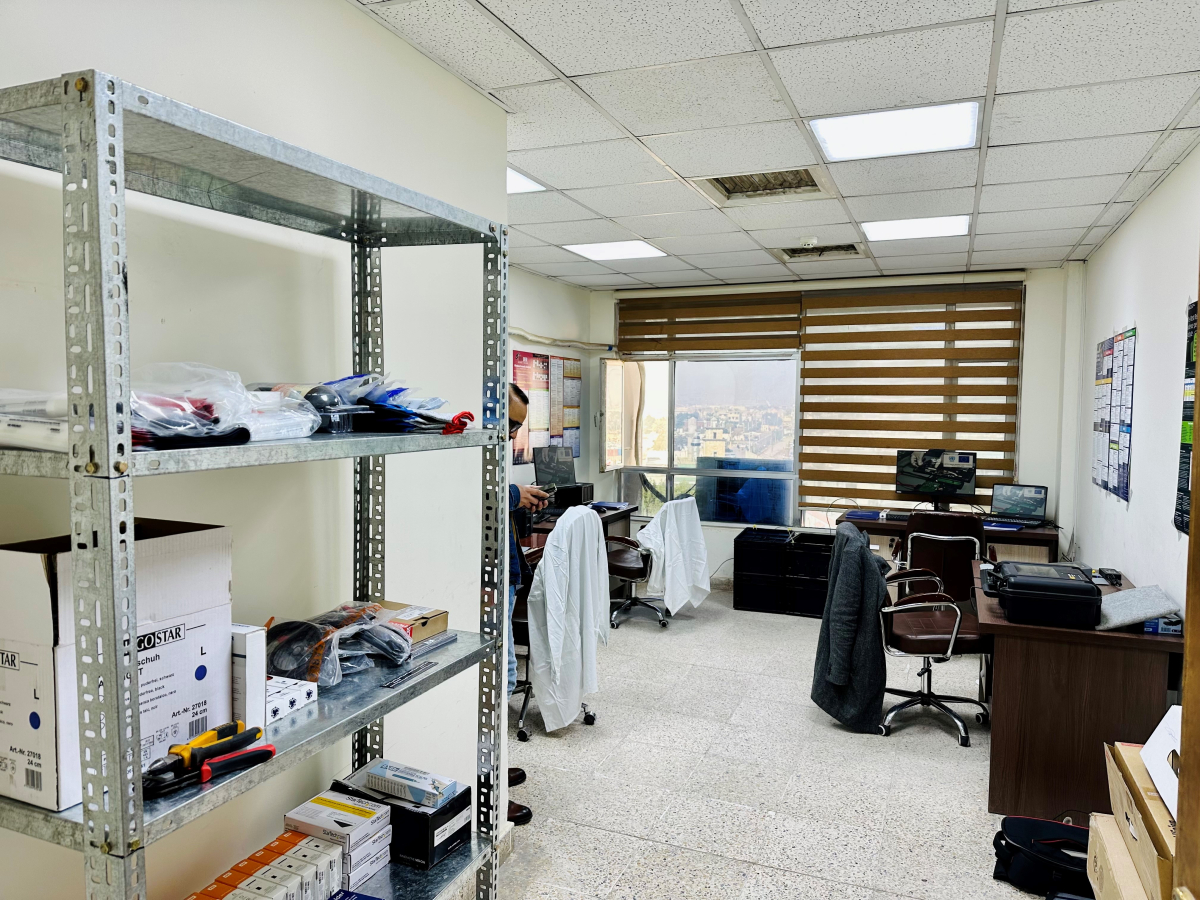 The creation of a centralized database has marked a milestone in Iraq’s judicial efforts to modernize its court system and improve service delivery to citizens. The joint collaborative efforts of UNITAD and their Iraqi partners will make information more easily accessible to judges, potentially reducing the time needed to retrieve case-related evidence and information. UNITAD has also supported the recovery and analysis of millions of documents recovered from digital devices, which improves the categorization and bibliographic coding of its court records.
The creation of a centralized database has marked a milestone in Iraq’s judicial efforts to modernize its court system and improve service delivery to citizens. The joint collaborative efforts of UNITAD and their Iraqi partners will make information more easily accessible to judges, potentially reducing the time needed to retrieve case-related evidence and information. UNITAD has also supported the recovery and analysis of millions of documents recovered from digital devices, which improves the categorization and bibliographic coding of its court records.
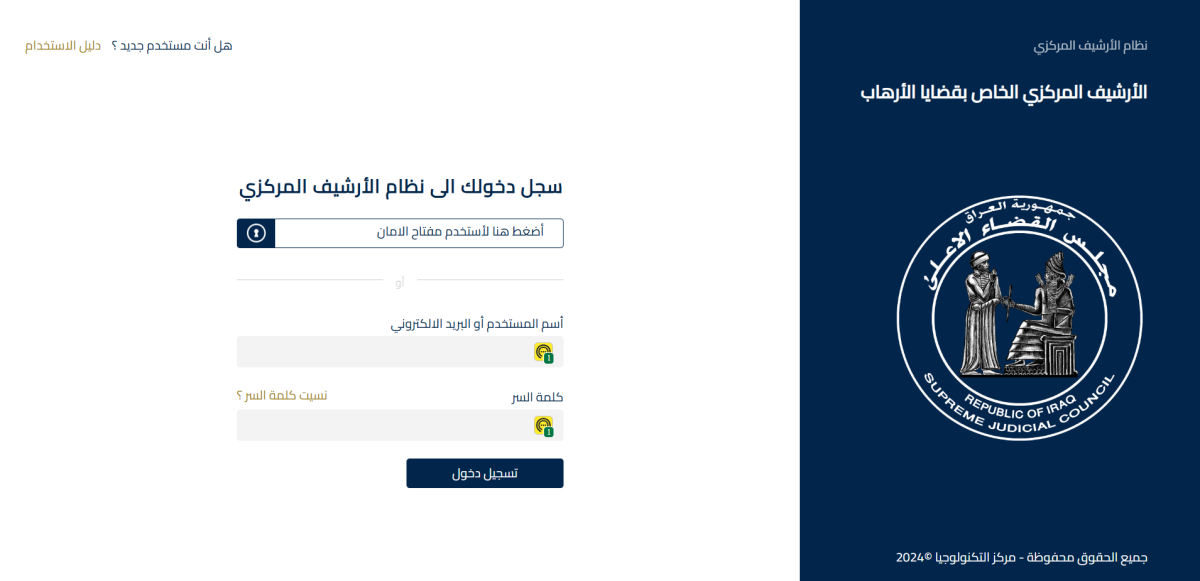 Judge Raed al-Mosleh, President of the Nineveh Appeals Court, Mosul remarked that “the storage of files and their preservation from damage and fire has greatly improved. It has become easier for employees to handle requests from citizens and lawyers, whereas previously the process took a long time due to the difficulty of searching for cases in a scattered, unorganized storage room. Now, the work takes much less time, and the courts are more efficient.”
Judge Raed al-Mosleh, President of the Nineveh Appeals Court, Mosul remarked that “the storage of files and their preservation from damage and fire has greatly improved. It has become easier for employees to handle requests from citizens and lawyers, whereas previously the process took a long time due to the difficulty of searching for cases in a scattered, unorganized storage room. Now, the work takes much less time, and the courts are more efficient.”
“The Digitization and Archiving Project represents a critical step in safeguarding the historical record of crimes committed by ISIL (Da’esh) in Iraq, bolstering efforts toward accountability and justice” said the office of Dr. Dindar Zebari, the Coordinator for International Advocacy in the Kurdistan Regional Government (KRG).
Quotes from Key Project Stakeholders:
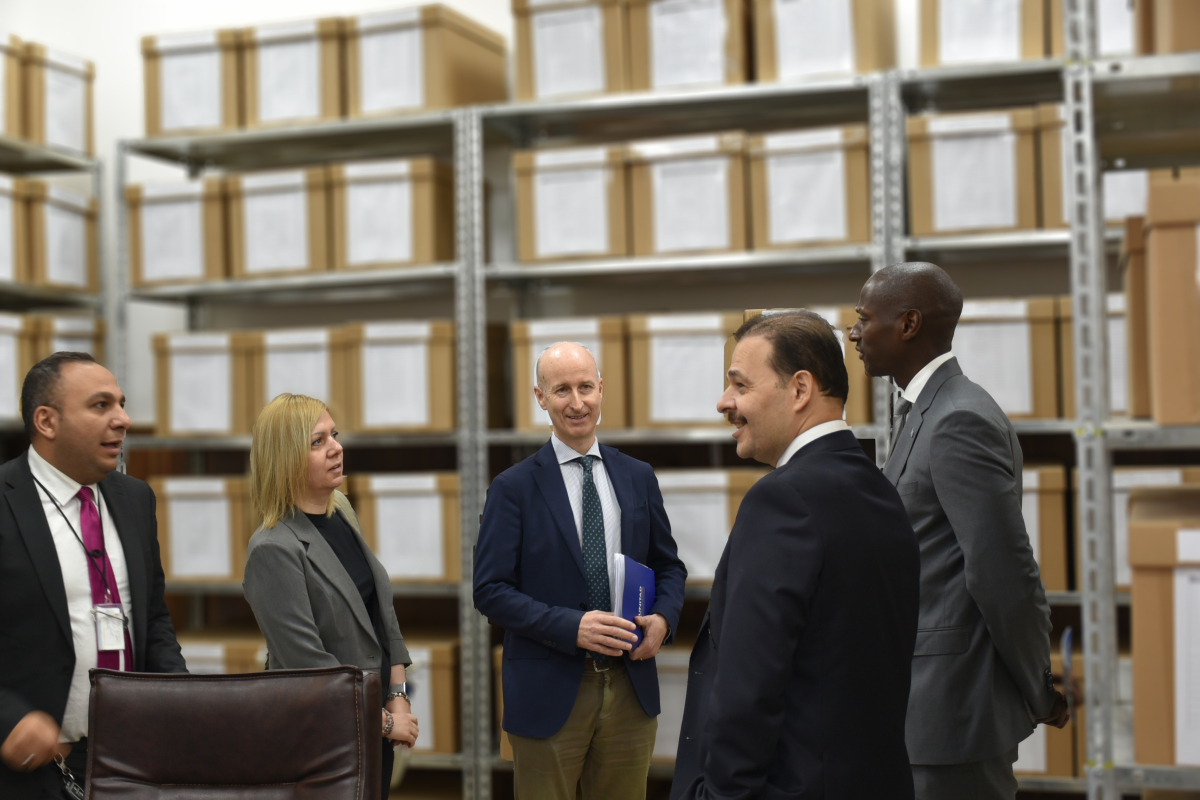 Al-Anbar Al-Anbar Court of Appeal
Al-Anbar Al-Anbar Court of Appeal
"Our court has witnessed a significant transformation thanks to the digitization project. It has accelerated search and retrieval processes, reduced errors caused by manual work and strengthened the public's trust in the judicial system."
— Zaid Salah Awad, Chief Programmer, Al-Anbar Court of Appeal
"This project has been a pivotal effort to digitize and safeguard court records, and the dedication of the team—supported by the provision of state-of-the-art equipment—has been key to its success."
— Dr. Sameeh Al-Qasim, Archiving Project Manager / Al-Anbar Criminal Court
- Salah al-Din Court of Appeal:
"This project has provided a safeguard for documents, protecting them from damage or loss, and ensuring their easy transfer during emergencies. It represents a major step forward for our judicial system."
— Maha Taha Hussein, Supervisor of the Digitization Project, Salah al-Din Court of Appeal
- Al-Rusafa Criminal Court:
"The digitization system has allowed for easier access to case-related information and improved document preservation, eliminating the need for large physical storage spaces and reducing the risk of environmental damage to critical files."
— Dhiaa Kadhum Al-Kinani, President, Al-Rusafa Criminal Court


